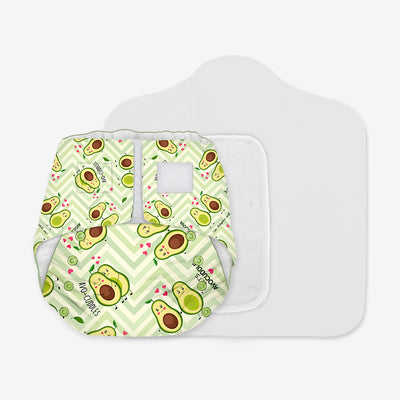Understanding Colic: Causes, Symptoms, and Effective Remedies

Are you a new parent struggling to understand why your baby is constantly crying and fussy? If so, you may be dealing with colic, a common condition that affects many infants. Understanding colic is the first step towards finding effective remedies and bringing peace to both you and your little one. In this comprehensive guide, we will delve into the causes, symptoms, and effective remedies for colic. From exploring the possible reasons behind colic to discussing the telltale signs that your baby may be suffering from it, we will provide you with valuable insights to help you navigate through this challenging phase of parenthood. Additionally, we will equip you with a range of proven remedies, including dietary changes, soothing techniques, and medical interventions, to help alleviate the discomfort and distress associated with colic. So, let's embark on this journey together and unravel the mysteries of colic, empowering you to provide the best care for your precious bundle of joy.
What is colic?
Colic is a condition characterized by excessive, often inconsolable crying in infants. It is most commonly observed in babies between the ages of two weeks and four months, although it can occur in older infants as well. The exact cause of colic is still unknown, but researchers believe it may be due to a combination of factors, including gastrointestinal discomfort, immature digestive systems, and heightened sensitivity to stimuli. Colic episodes typically occur in the late afternoon or evening and can last for several hours. During these episodes, babies may exhibit signs of distress such as clenched fists, arched back, and pulling up of legs. While colic can be incredibly challenging for both parents and babies, it is important to remember that it is a temporary phase that usually resolves on its own by the time the baby reaches six months of age.
Common causes of colic in infants
There are several potential causes of colic in infants. One theory suggests that colic may be a result of gastrointestinal issues, such as gas or acid reflux. Babies with colic may have an immature digestive system, making it difficult for them to process certain foods or tolerate certain ingredients found in formula or breast milk. Another possible cause of colic is an overstimulation of the baby's senses. Babies who are easily overwhelmed by noise, light, or touch may be more prone to developing colic. Additionally, factors such as maternal smoking during pregnancy, maternal stress, and a family history of colic may increase the risk of a baby developing colic.
Symptoms of colic
Recognizing the symptoms of colic is crucial in identifying whether your baby is experiencing this condition. Typically, colicky babies will exhibit frequent, intense bouts of crying that cannot be easily comforted. These crying episodes often occur at the same time each day, usually in the late afternoon or evening. During these episodes, babies may show signs of physical discomfort, such as clenched fists, tight abdominal muscles, and a flushed face. They may also exhibit restlessness, difficulty sleeping, and an increased need for physical contact or rocking. It is important to note that colic is not associated with other symptoms such as fever, vomiting, or changes in bowel movements. If your baby is experiencing these additional symptoms, it is important to consult a healthcare professional to rule out other potential causes.
Diagnosing colic: When to consult a doctor
While colic is a common condition, it is essential to consult a doctor if you suspect your baby is experiencing colic. A healthcare professional will assess your baby's symptoms and rule out any underlying medical conditions that may be causing the excessive crying. During the evaluation, the doctor may inquire about your baby's feeding habits, bowel movements, and overall behavior. They may also conduct a physical examination to ensure there are no signs of infection or other health issues. If no underlying medical conditions are found and your baby meets the criteria for colic, the doctor will provide guidance on managing the condition and offer support to help you navigate this challenging phase.
Effective remedies for colic
While there is no definitive cure for colic, there are several remedies that have been found to be effective in alleviating the symptoms and providing relief for both babies and parents. These remedies can be divided into natural approaches, such as dietary changes and soothing techniques, and medical interventions when necessary.
Natural remedies for colic: Herbal supplements and alternative therapies
Many parents turn to natural remedies to help ease their baby's colic symptoms. Herbal supplements such as chamomile, fennel, and ginger have been used for centuries to soothe digestive discomfort in both children and adults. These supplements can be administered through breast milk, formula, or diluted in water. However, it is important to consult with a healthcare professional before introducing any herbal supplements to your baby's diet. Additionally, alternative therapies such as infant massage, chiropractic adjustments, and acupuncture have shown promise in reducing colic symptoms. These therapies aim to alleviate tension in the baby's body and promote relaxation, ultimately providing relief from the discomfort associated with colic.
Dietary changes to alleviate colic symptoms
In some cases, colic may be triggered by certain foods or ingredients in breast milk or formula. If you are breastfeeding, it may be helpful to keep a food diary and identify any potential triggers. Common triggers often include dairy products, caffeine, spicy foods, and vegetables that are known to cause gas. Eliminating these foods from your diet for a period of time and observing any changes in your baby's symptoms can help determine if dietary changes are necessary. If you are using formula, your doctor may recommend switching to a hypoallergenic or partially hydrolyzed formula, which is easier to digest and less likely to cause gastrointestinal discomfort.
Soothing techniques for colicky babies
Finding soothing techniques that work for your colicky baby can provide much-needed relief for both of you.
Try out various techniques to determine which one works best for your baby. Some effective soothing techniques include gentle rocking, swaddling, white noise machines, and taking your baby for a drive in the car. The key is to create a calm and soothing environment that helps your baby relax and feel secure. It may take some trial and error to find the right combination of techniques, but once you do, it can make a world of difference in managing your baby's colic.
Support for parents dealing with colic
Dealing with a colicky baby can be emotionally and physically exhausting for parents. It is important to remember that you are not alone and that there is support available to help you through this challenging phase. Reach out to your partner, family, and friends for support and understanding. Joining a support group or seeking professional counseling can also provide a safe space to share your frustrations and gain valuable insights from other parents who have experienced colic. Taking care of yourself is equally important during this time, so be sure to prioritize self-care and seek help when needed.
Managing colic and seeking professional help
Colic can be a distressing experience for both babies and parents, but with the right knowledge and support, it can be managed effectively. By understanding the causes and symptoms of colic, you can better navigate this challenging phase of parenthood. Implementing natural remedies such as dietary changes and soothing techniques can provide relief for your baby's discomfort. Remember to reach out for support and seek professional help when needed. With patience, understanding, and the right resources, you can provide the best care for your precious bundle of joy during this colicky phase














